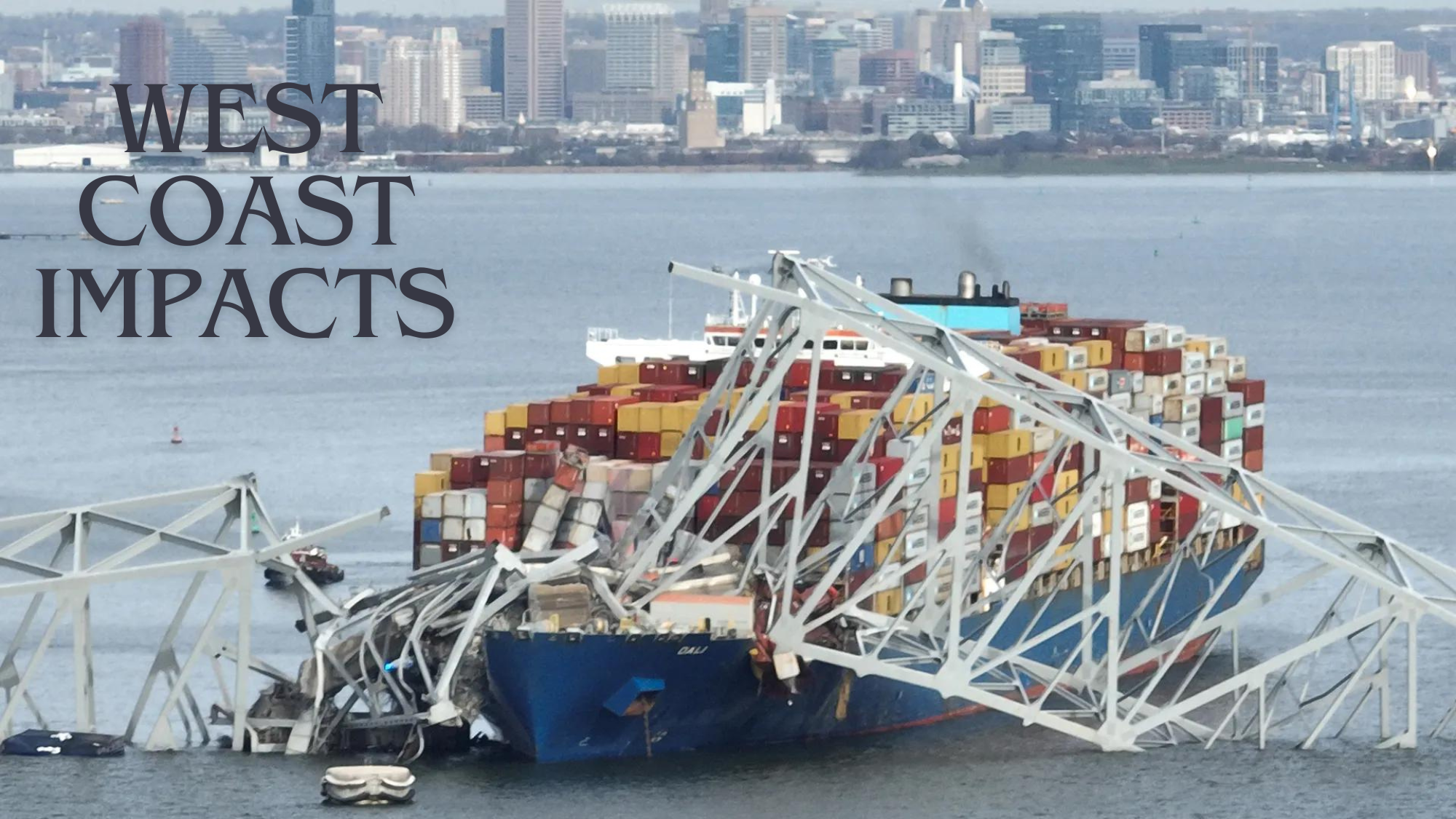
The collapse of the Francis Scott Key Bridge in Baltimore, along with the closure of the Port of Baltimore, has sent shockwaves throughout the supply chain, reaching the West Coast.
Major corporations like Amazon, FedEx, and BMW, operating distribution warehouses near the bridge’s northern end, are contending with the fallout, adding complexity to logistical hurdles. Retail giants like Volkswagen and BMW anticipate trucking delays due to the collapse.
The closure affects industries such as farming machinery, construction equipment, and imports like sugar. The Domino Sugar refinery, a significant manufacturer in Baltimore, faces operational uncertainties during the shutdown.
The cruise industry, including companies like Carnival Corporation, faces substantial profit losses due to the port’s temporary closure.
In the short term, East Coast businesses and consumers will experience increased costs as container ships reroute to nearby ports in New Jersey, Pennsylvania, and Virginia, causing logistical adjustments, delays, and congestion.
Looking ahead, the bottleneck in imports and exports may drive a shift towards West Coast ports, potentially boosting activity, albeit raising concerns about congestion.
Businesses may reassess import strategies, redirecting cargo to ports with greater capacity and infrastructure, such as those along the Gulf Coast or in Los Angeles and Long Beach. Long-term impacts depend on factors like fuel prices and the duration of the port closure.
The collapse underscores the interconnected nature of global supply chains and emphasizes the need for resilience and proactive adaptation in the retail and logistics sectors.





